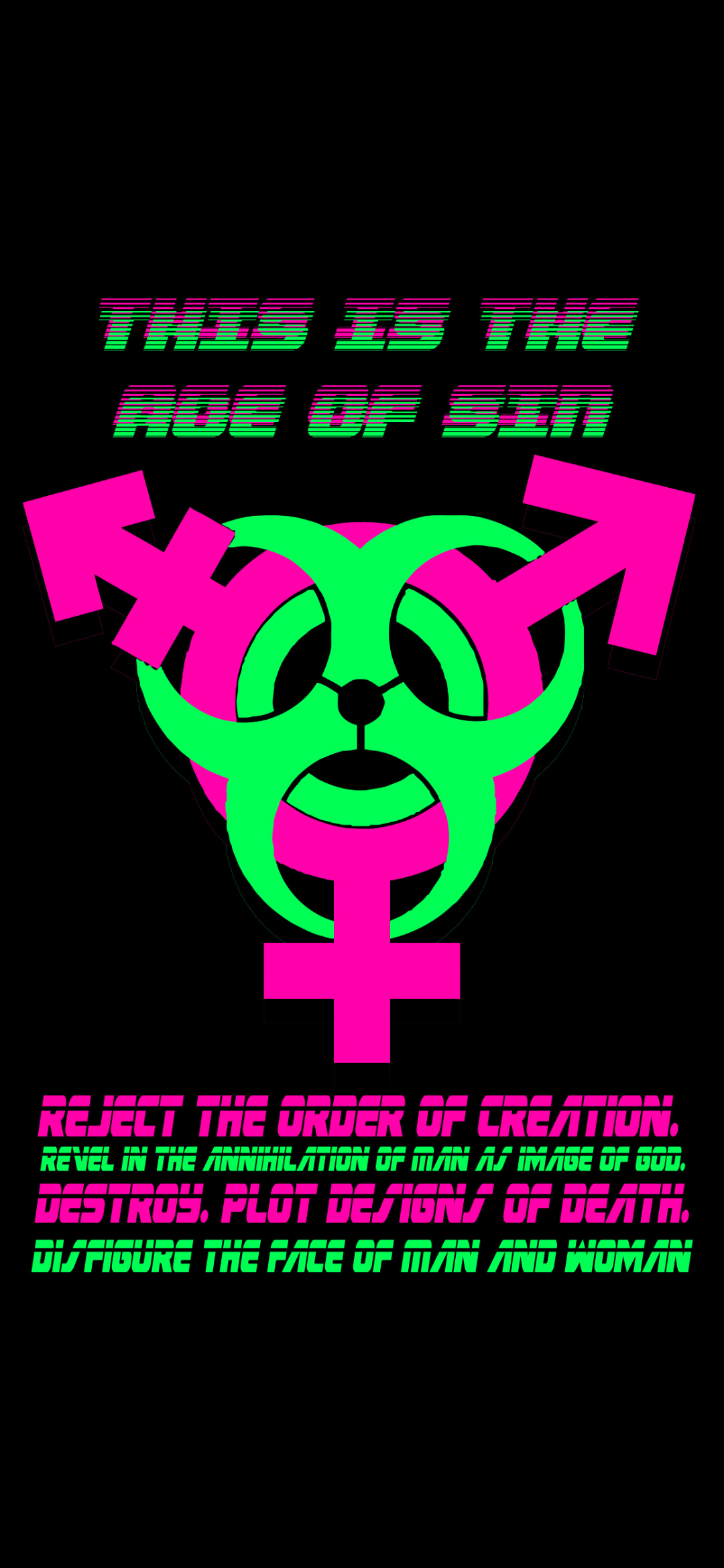Bring back web rings!
Bring back visitor counters!
Bring back iframes!
Bring back general midi renditions of 90s pop songs!
Back then people made affiliates with each other based on category of the sites so you'd have these little buttons with logos of other sites in the ring. It was a way of findingnsimilar content when social media wasn't a thing and searches weren't as robust
I remember I used to read a lot of early video game web comics and they'd all have each other on the sidebar
That sounds really fun, getting recommended similar things based on what the creator thinks you might like rather than being a targeted demographic by amazon.
Yea I mean it was subject to capitalist shit too. Like I'm seem to remember big sites charging for affiliate links and stuff. But yea a lot of it was just like "oh yea i fw your content."
I probably found most of the sites i visited in thr 90s that way or just in chatrooms or friends by word of mouth. Ironically it some ways it was more communal before social media, everything was shared by people and not as much by algorithms
Ah really? Cpol. I haven't dabled in web development in almost a decade but I remember there was a sentiment going around that they were bad.
Come check out Gemini, its a new very simple internet protocol. Kinda like the old internet but without a lot of the crappy parts. Also it has a disproportionately high amount of leftists (not everyone yet though...)
https://geminiquickst.art/
Its mostly made up of blog, personal wikis, and stories like this gemini://commie.space/blog/ultraviolence/ or this gemini://gemini.circumlunar.space/users/hundredrabbits/weather.gmi
Gemini is still small enough that there are aggregators that list and categorized most of the active sites. There's also a search engine which is neat.
Remember getting really into gopher around 2018 and losing interest just before this came out. Was really interested in refurbishing old computers but bloated web browsers where always the biggest problem. Was really disheartening during the pandemic to see school’s dependence on chrome browser, complicated enterprise software and zoom/teams when a lot of stuff could have been put up served over genimi or a really simple static web page.
The tech bros will cry “renewable investment” but there is only so much capacity that we can build every year. And really only so much capacity that should build before seriously damaging the surrounding ecosystems. The efficiency gains of computer hardware has been outdone by the wastefulness of the web and the race for things like better looking videogames. Protocols like this, matrix and bittorrent free us from the cruft of capitalism.
Yea exactly, we desperately need to stop making new computers and repair the ones we already have. Computers have gotten millions of times faster in recent decades, but feel mostly the same as software have gotten millions of time slower. Gemini's goal isn't really to "replace" the web per say, but to be the best tool for sharing simple plain documents and information around (It's basically just updated gopher made by a lot of the gopher people). Obviously, for some of the web's uses (big ole forums, web apps, video sites, etc) gemini isn't useful and instead other software and protocols would need to be made to fill in those gaps. Arguing that gemini can't replace the web is like saying bikes can't replace cars, like yea obviously we'll also need trains, busses, and a solid public funding for transport. Also not everyone can or wants to ride bikes, but it doesn't mean bikes aren't cool and good for the people like them.
With schools in particular I think it's really important they build their sites in an accessible and light weight manner. If you know people who work at a university or school you could bring up the fact that lots of people (including potential researchers and students in non-western coutries) still use extremely old unsupported android phones and DSL connections (or worse). One of my co-workers at my last job used to drive over to my house to download shit because his home internet is 3Mbits down on a good sunny day.
This site is really good at getting the point across. https://whatdoesmysitecost.com/#gniCost
That is a really good way of putting it as a percentage of GNI. Reminds me of danluu's blog posts on web bloat and web optimization.
The developer admits it's not a replacement for the web. It's really a refuge for people sick of dealing with other people's design decisions. Something that puts the content first. One input I would like is from somebody who is visually impaired however. This is where gopher leaves a lot to be desired: http://ssb22.user.srcf.net/css/gopher.html . I imagine gemtext solves the issue of reflows though.
Still the web is really useful especially for secure forms. There is alot of great work by developers that shouldn't been thrown out with the bathwater but under without any sort of practical restraints it has made the climate problem so much harder to solve.
Oh yea the reflow stuff is the best improvement of gemini imo, makes it possible to use on a phone. Also theres actually already a good number of blind or visually impaired people using gemini. I read this story recently gemini://the-brannons.com/linux-adventure/
Gemini pages aren’t programs that run in your browser like most modern websites are; they’re just text with a little formatting, so there are no surprises. Once you know how one Gemini page works, you know how they all work.
Okay but that sounds dumb.
there are no in-line images
:wut:
Gemini has no support for caching, compression, or resumption of interrupted downloads. As such, it's not very well suited to distributing large files, for values of "large" which depend upon the speed and reliability of your network connection.
Gemini is a "less is more" reaction against web browsers and servers becoming too complicated and too powerful.
It's a cute system but I don't see how it would ever gain any traction. There isn't even a web hosted view of the source code repository. Also it's a text-based protocol which is like the worst part of HTTP+HTML.
My gripe with text-based stuff is it only benefits developers who want to look at stuff in debug tools (in the browser, since the packets are encrypted). For everything else it's just a nuisance and takes way more computational power and takes up more space.
It also makes parsing more complex because text has a character set and there's lots of weird little things about text parsing. It also leads to specifications being under-specified, and makes it easier to have security vulnerabilities, etc. Binary protocols are usually a lot more well-defined, because they have to be. Look at how long DNS, SSL/TLS, and almost every binary file format (PNG, JPEG, etc.) have been working for. Then look at how many text-based protocols have lots of incompatible implementations/features: XML, HTML, JavaScript, HTTP headers, markdown, GLSL, etc. have all had parsing and feature incompatibilities. You can't really have incompatibilities with binary protocols because you can't just shove more text in between other stuff. Extensibility has to be explicitly provided for in a binary protocol.
Binary protocols are also just easier to implement, even though people think the opposite. It's so much easier to read a series of integer values from a byte array than trying to parse text in a specific format. I was able to write a basic WAV file parser really easily, but writing a parser for anything requires a lot more thought.
Text formats also have the problem that you can't always efficiently include binary data inside them. Encoding stuff in base 64 is really inefficient.
Well, even JPEG files are intelligible to humans. You just need to use an image viewer, one that can show metadata and so on. The file formats themselves have specifications that specify their exact format, often in a pretty understandable way. Text basically just gets replaced with integer enums and counts and so on. It's having the right tools that's important. Most web content would be impossible to parse if web browsers didn't come with fancy developer tools that show everything nicely formatted and everything, with an element picker tool that shows bounds. Java is a good example of a binary system that has tooling that makes it intelligible. It's a big complicated VM with thousands of objects and things, but if you use a debugger like in IntelliJ or Eclipse, or use a monitoring tool like VisualVM, you can basically inspect the entire execution of the program even though the class file format is in binary (with many string names and stuff). You can pause execution and view the stack trace, you can dump all the objects in the heap and look at their fields and see the objects they point to, etc.
The systems themselves are always going to be more complex than is immediately comprehensible. It's pretty commonly pointed out how it's nearly impossible to implement a web browser from scratch today, at least not without an immense amount of funding and people and determination (because all these text formats are extremely over complicated, because it's really easy to just add another string value to something as a "feature" and call it good, even though that feature takes 1000 lines of code to implement).
Also, the electronics in every computer are already using binary communication protocols, and those protocols are just about as important to understand. But a lot of things use standard protocols like PCIe or I2C, which anyone can read the specs for (sometimes for a fee).
Here's the spec for the WAVE file format (which is admittedly much simpler than other formats, since it uses no compression): http://www-mmsp.ece.mcgill.ca/Documents/AudioFormats/WAVE/WAVE.html
You basically just read it top-to-bottom and implement it as you go.
edit: I just remembered another amazing tool. Wireshark! You've used it already maybe. Probably the most awesome tool I've ever used. You can inspect internet/ethernet packets and it parses them using its understanding of tons of different protocols. You can inspect exact information about all sorts of things and it shows you the exact bytes those fields correspond to.
Lol as I'm talking about how vr isn't quite super corporatized yet, I get an email about how new balance shoes are available for my avatar in vr chat
The capitalists are fast these days
I can totally see that. Lol it's basically what I dreamed about chatrooms being one day in the late 90s early 00s.
Vr is really cool right now bc it's super fresh and hasn't quite been corporatized even tho meta is trying like hell. I love how janky and communal it is.
People have their own worlds in vr chat with screen shots of them and their friends hanging out. It would be such cool tech under socialism.
Neocities.org is great for that sort of thing. There are also a ton of commies on there too! Be sure to check out the Yesterweb Zine, it has some really neat articles specifically about this topic: https://yesterweb.org/zine/issue-00/02/
Just the signup page having the my-site-name.
gneocities.con fills me with so much nostalgia haha. Thanks
errbody got nostalgia glasses for the times where you had to find the x on 6 different pop-up ads before you could even look at a website
Heh, time to look at some hentai while my mom is busy elsewhere in the house!
popups: :troll:
Setting up a hexbear bbs forum and changing the target of the domain to it for April fools next year
And leave it like that. I demand we becomes a bbs forum. It's a better system .
The more I think about it the stronger I feel about a bbs system. Customizable and ugly as hell is very Hex
I have a professor who refuses to use the official university website because he managed to get his last name .org ages ago and hasn't updated the design much sense then
Powerful Java applets
Man I miss the mouse pointer effect thing that made the webpage look like rippling water.
The
node_modulesfolder of a stupid, small web app at work (literally some Ajax calls, multistage forms and a login screen) is 1.4gb. Technology just sucks, man.Yeah, we make gains in the efficiency of the tech, and then promptly wipe those gains out by just not bothering to optimize. My favorite thing about modern video games is how at some point devs just decided "well, everyone surely has massive SSDs now, so we can just have our games be 100 gigs, why not. Just stick all the uncompressed audio for a dozen languages in, sure".
At least pirates make releases where you can cut the size down by not downloading a bunch of the extra stuff.
Anybody that ever implemented forced smooth scroll even as a joke gets lifetime gulag no parole.
Chad 2000 website is better for privacy (no JS, no geoblocking). Also no CDNs/MITM like cloudflare, aws etc.
In 2000 my favorite websites were the ones with a good links page. That was the best way to navigate the web before search engines were popular.
Evergreen recommendation to free yourself from the chains of the Web and explore Gemini space, an uncolonizable mass of those who miss the old web.
I don't quite understand what I'm seeing, is there some sort of guide to help me know how to use this?
Here's an FAQ. Basically Gemini is a new internet protocol that is text based, can't use Javascript, is very lightweight, and can only be accessed by Gemini browsers. Lagrange or amfora are my picks for favorite browsers. You download one of those and start poking around! A good place to start is gemini://medusae.space/, which is a catalogue of stuff in Geminispace. gemini://station.martinrue.com/ is like a social network on Gemini. You find stuff like you used to find stuff on the old web—just wander. Get lost. Reclaim the magic that was the internet.
This page has some more info with pics of various browsers https://geminiquickst.art/
I love buttons. I spend a lot of time going thru old Japanese homepages and the buttons people make for their sites are so charming.
Ehh, some of these aren't good points. Raster images as buttons are ugly as fuck and just dumb when it could just be some html and css. Adjusting to screen sizes is a good thing. Java applets and Flash were infinitely worse than JavaScript is. Modern extensions are much better those shitty toolbars. You always needed a more in depth backend if you were doing anything other than hosting files.
Fuck Node though.
On a more serious note: users don't really like when every action requires a page refresh/loading a new page, and unfortunately the only way to avoid that is with a shitty JS based SPA (see: hexbear.net).
users don’t really like when every action requires a page refresh/loading a new page, and unfortunately the only way to avoid that is with a shitty JS based SPA
Virgin Web App: uses full SPA to reduce page refreshing, website shows hours of full page "skeleton loaders" and spinners.
Chad Website: just makes website fast instead, ignores trendy things like javascript.
just makes website fast instead, ignores trendy things like javascript.
It doesn't matter how fast the website loads, the browser still makes it clear that the page is reloading, and people don't like it.
Virgin Web App: thinks people care about page reloading, also you have to reload anyways all the time because of bugs
Chad Website: knows the only thing users don't like about page reloading is how slow it is, makes a fast website
For a real example, one of my friend's college math assignments were on a website that reloaded the page for every answer submission. Which in terms of not using JS makes sense, the only way to submit something is through a new request and the only way to make a request that doesn't reload the page is through JS.
But it was still jarring. By definition everything has to disappear from your screen then be redrawn. And no matter how fast your site is, how fast your servers are, how tiny your response is, the browser itself takes enough time refreshing the page that people will notice. No one likes that.
Add on the fact that you can lose your scroll position (don't you just love it when a site snaps back to the top?) and it gets even worse. There's not even much a well designed site could do about that.
And really I'm saying all this because it sucks that there's no good option, for both the end user and the developer.
Ads cannot be blocked because they are part of the HTML file
Ad blockers also have the ability to remove certain elements from a page.
The same could be said about url based blocking. If YouTube for example decided to make the links to their ads indistinguishable from normal video links (youtube.com/watch?v= 11 digit base 64 id), there's not much you could do besides try to compile a list of literally every single ad.
What the fuck's an Internet Explorer? Don't you mean Netscape?















